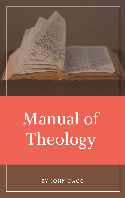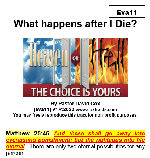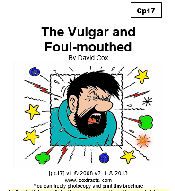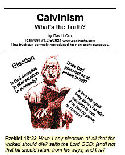Ads
Contents
Introduction of Criteria of determining a religious group
What would you say if a religious group was composed of basically good spiritually people, but that it had some notoriously “rotten eggs”. People that turned out to radically attack, try to destroy, or try to trip up true Christianity? Would you immediately mark off the group as being a bad, wrong group that you would have nothing to do with it?
Well consider for a minute that Jesus’ group of disciples had Judas Iscariot which tried to destroy all of Christianity and the entire plan of salvation by having Christ. I think that would qualify as being a “rotten egg”. Consider of this group, the entire leadership of the group abandoned Jesus when things got bad, and they took Jesus. The leadership went into hiding. Consider Peter, one the principle leaders under Jesus, that he denied Christ three times in the very procession of his trial. Consider that the Apostle John records the events obviously being present in the tribunal, but again, not standing up to defend Christ, and not being looked upon disfavorably by the Jewish system trying Christ. We see Peter later on in his life being swayed into false doctrine by the judiazers and Paul rebuking him for this in Galatians.
When you begin to set ridicuous “non-human” standards, they won’t work. Jesus being God selected whom He selected knowing what they were potentially capable of doing. It didn’t stop his decision from including these men.
So what are good solid biblical criteria for judging what a religious group is as far as “biblical” or “heretical”.
The glaring difference between the New Testament account of these things what is so common in Christianity today (and church history in general), is that there was an established norm or standard among the group (centered around the eternal spiritual pattern of God, seen in Jesus-God). This norm or standard was upheld, and any deviations to it were rebuked and punished when there were not correct responses to the rebuke.
The Bible presents us with a process centered around holiness. When a Christian falls, he should repent of his sins abandoning them. When he refuses to repent (confess his wrong, and promise to no continue in that sin), then he is disciplined by the group by expulsion from the group, and from fellowship of the members of that religious community.
The first and probably most easily dispatched criteria is simply what is their spiritual authority? Here we examine what they say is their spiritual authority, what is referred to in their writings, teachings, and preachings, and in observed practice of their religion as their spiritual authority.
”Seven Day Adventists” – Even though they say that the Bible is the authority for their norms, doctrines, and practices, the writings of Ellen White are exalted to be equal with the Bible.
”Jehovah Witnesses” – The WatchTower and official organization of the JWs is what is their real authority. Even they themselves have published on their website, that any JW that stops reading and studying the official JW material will leave the JWs in 6 months.
”Roman Catholicism” – Another case of a non-scriptural authority. Even though they defend and elaborate on why Rome (the Roman Catholic Church world organization) is the “vicar of Christ” on earth until Jesus returns, it is another spiritual authority that refuses to concede its errors and differences with Holy Scripture.
”Watchman Nee” – He is an example of a “localized spiritual authority”, and he teaches that only the local church is the real spiritual authority.
”Pentecostal Faith Preachers” – These men typical (the Pentecostal doctrine commonly used in most of their churches) promote an extension of the visions and divine revelation of the New Testament into our day, refusing to accept the last verses of Revelation that curse anyone who adds to, or takes away from the Divine Scriptures.
What we must insist upon is that only the divine Scriptures (the 66 books, not including the Apocrypha at all) are the only truly divine authority for “faith and practice”.
It is completely valid to use Scripture to judge any system, group, or individual’s actions. This is what Jesus did in rebuking and refusing the Jews traditions.
What are their claimed doctrinal beliefs.
The Bible presents us with a body of doctrinal beliefs which we are to take and make our own. When we judge whether a group or person is “biblical”, this criteria is a valid element. Simply put, if they don’t profess the Apostles’ doctrine, they are wrong.
We will examine some twisting and misinterpretation of Scriptures in other sections.
What are their actual practices.
True biblical doctrine will always affect our daily walk, and we can see by the piety of our life what our doctrine is. Practice is a logical and valid outcome of belief. Therefore it is valid to judge a group or individual by their actual practice. A fornicator or abuser of children will normally claim that he never does that kind of stuff, just as a thief will build up trust in a person before they steal from them.
The actual actions of the group against infractions of religious norms.
Here we admit that at times, there may be some “human sinfulness” in the group. But when it happens, there should always be a biblical response to that. It should be always rebuked, except when the area of damage is very limited and private. For example, when a husband sins against his wife by lusting after another woman, perhaps the pastor should know and give counsel, but that is not necessarily something everybody in the group should know about. At times it is necessary that a public confession and denouncing of that sin is necessary when fornication or adultery was involved, and this is especially true when the individual involved has positions of leadership, oversight, or ministry before the church.
An Atmosphere of Repentance
This first element of true Christianity is simply that of repentance. The early church had an environment of constant and emphasized repentance. The preaching was directed at rebuking common and visible sins, and the expected response was repentance and abandonment of that sin.
This is not very common in our churches of today. Among the few Arminianist leaning churches that do preach very heavily on sin (think Sword of the Lord, Jack Hyles groups, Pentecostal Holiness, Nazerence groups, etc), the sins that they preach against are more interpreted sins that actual sins based in Scripture. For example, their pet sins they love to preach against are pants on women, cosmetics used by women, smoking, and other things that just are not in the same class as adultery, fornication, idolatry, or other sins that we see denounced in Scripture.
Strawmen are easily defeated
Why? The reason for this is that they at least see the N.T. element of repentance, and try to provoke it (even though in a false or untrue manner), and these things are “easy” to preach against. Try preaching against prayerlessness, against the refusal of God’s people to witness their faith, or to a rich church against the excesses of riches, and to a poor church against the laziness of the poor to work. You preach against the very sins that people really have, and as a precher, you will be thrown out of that church. That was the kind of true New Testament preaching that Jesus and John the Baptist preached.
Our conclusion then is that it is valid to judge a group on the basis of what their spiritual authority is, their professed beliefs are, what their practices are, how they treat violations to their norms and beliefs.

Dagg Manual of Theology is a theology work in 2 volumes by J.L. Dagg a Reformed Southern Baptist. It is an extensive, very ample presentation of doctrines.
This is an extensive Bible Systematic Theology (Bible Doctrines book) from a conservative point of view.
Read/Download: now with pdf download link. 50,000 views on this page with download link







This is my first time visit at here and i am truly happy
to read everthing at one place.